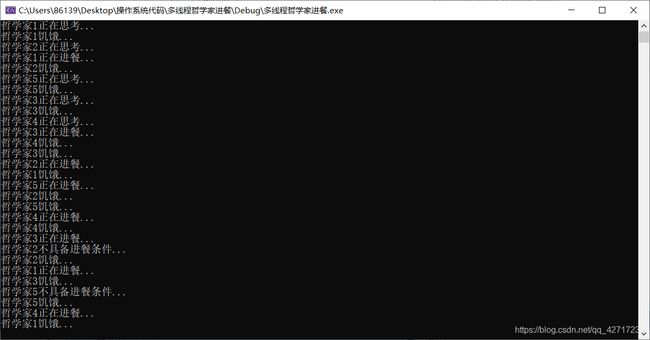多线程实现哲学家进餐问题
设置一个临界区用于五个哲学家线程的创建
设置五个互斥量分别用于每一根筷子
伪代码
void phi()
{
EnterCriticalSection(&cs);
//进入临界区;
printf(哲学家正在思考...);
LeaveCriticalSection(&cs);
//离开临界区;
while(true)
{
printf(哲学家饥饿...);
if(WaitForSingleObject(Mutex[左边的筷子],有限的等待时间))
//拿到左边筷子
{
if(WaitForSingleObject(Mutex[右边的筷子],有限的等待时间)
//等待有限的时间后,如果未获得右边的筷子,将放下左边的筷子
//防止所有人同时拿起左边筷子出现死锁
{
printf(哲学家开始进餐...);
ReleaseMutex[右边的筷子];
//放下右边的筷子
}
else
{
printf(哲学家不具备进餐条件...);
}
ReleaseMutex(Mutex[左边的筷子]);
//因为进餐结束或者未获得右边的筷子而放下左边的筷子
}
}
}
程序代码:
#include